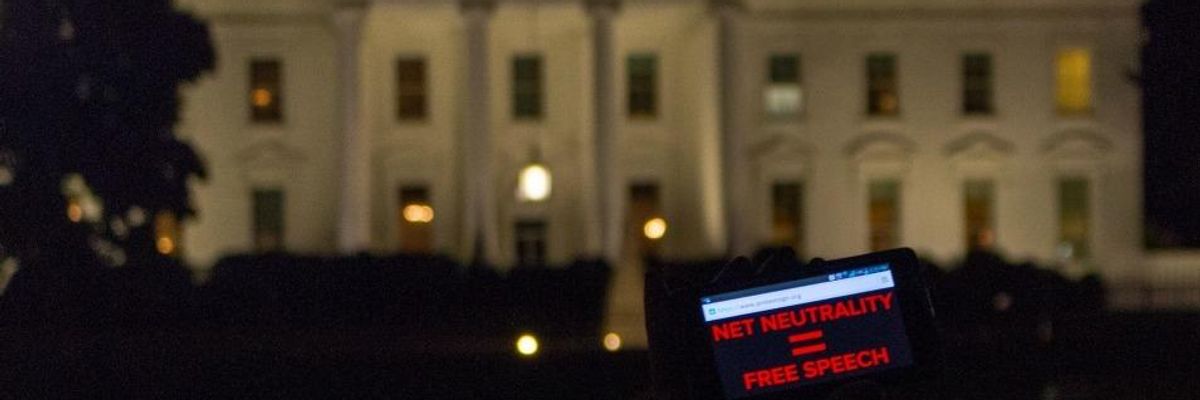A U.S. House subcommittee is meeting Wednesday to make a final attempt to derail net neutrality ahead of the Federal Communications Commission's vote scheduled for later this week.
The Communications and Technology Subcommittee will discuss what they say are "legal, economic and policy uncertainties" of the sweeping reforms the FCC is expected to approve at its meeting Thursday--but what consumer rights advocates are calling a "last-ditch effort" to undermine crucial internet protections.
"Some of the most outrageous lies about net neutrality will be repeated at today's hearing," said Matt Wood, policy director at media reform group Free Press.
At the top of the subcommittee's agenda is the issue of reclassification. Earlier this month, FCC chairman Tom Wheeler announced his intention to regulate the internet as a public utility under Title II of the Communications Act, both for broadband and mobile networks, making it free of paid prioritization and other forms of discrimination--one of the strongest protections possible for preserving an open internet.
However, while that announcement was met with praise from grassroots organizers and supporters of net neutrality, it was derided by cable industry giants and lobbyists, as well as the two Republican members of the FCC, who claim that the proposed regulations would stifle innovation and allow the government too much power over the internet.
One of the subcommittee members, Rep. Greg Walden (R-OR), has increasingly politicized the issue over recent months by suggesting that Wheeler was capitulating to President Barack Obama, who made his support for strong net neutrality protections public in November.
"The closer we get to the FCC rubber stamping President Obama's Internet grab, the more disturbing it becomes," Walden said Tuesday. "Consumers, innovators and job creators all stand to lose from this misguided approach."
Those arguments are little more than hyperbole, activists say.
"This overheated rhetoric can't withstand scrutiny, and bears no resemblance to the law and the facts," Wood stated on Wednesday. "Big cable and telecom companies have paid their lobbyists and public relations firms to deceive the public with these claims... net neutrality rules don't regulate what's on the Internet, just as the FCC's rules for phone networks don't regulate what people say on phone calls.
"This wasn't a partisan issue then, and it shouldn't be one today," Wood continued. "Support for real net neutrality is present across the political spectrum, and more than 80 percent of self-identified conservatives want strong rules."
The meeting will hear testimony from industry representatives like Robert Atkinson, founder of the Information Technology and Innovation Foundation think tank, as well as internet business analyst Larry Downes and others. Yet those voices only serve to repeat claims that are "false and are based on shoddy analysis," Wood says.
Despite this and other recent attempts to halt or weaken net neutrality reform, the FCC is still expected to vote for reclassification and other internet protections on Thursday. The proposed regulations represent a near-complete policy turnaround by Wheeler, a former cable lobbyist, who previously recommended lax pro-industry initiatives.
In a press call on Tuesday, Free Press president Craig Aaron said "maybe for the first time" he will be able to "stand up and applaud what the FCC is doing" on Thursday.
"That's no small thing. The FCC's vote on Thursday may be the most important victory for the public interest in the agency's history," Aaron said.
Grassroots advocates are prepared for the industry pushback to continue even if the FCC passes the net neutrality reforms, but say those same protections will prepare organizers for the fight.
"After this vote, I am certain that internet service providers will attempt legal action and members of Congress will put forward legislation, and that legislation will be in the interests of ISPs," Malkia Cyril, executive director for the Center for Media Justice, told Common Dreams on Tuesday. "We are still going to have a battle on our hands, but this vote gives us a tool to fight for our rights and voices."

